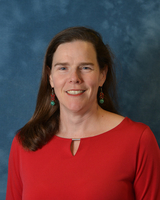Bio
Professor Mary Alice Haddad’s current work concerns urban diplomacy and environmental politics with a focus on East Asia, especially China, Japan, Korea, and Taiwan. Her earlier research focused on civic engagement, democracy, citizenship, volunteering, and nonprofit organizations. She is the John E. Andrus Professor of Government, Director of the Office of the Faculty Career Development, and Professor of East Asian and Environmental Studies at Wesleyan University.
A Fulbright and Harvard Academy scholar, Haddad is author of three books: Effective Advocacy: Lessons from East Asia’s Environmentalists (MIT press, 2021), Building Democracy in Japan (Cambridge, 2012) and Politics and Volunteering in Japan (Cambridge, 2007), and co-editor of two more: Greening East Asia: The Rise of the Eco-Developmental State (University of Washington, 2021; co-edited with Ashley Esarey, Stevan Harrell, and Joanna Lewis) and NIMBY is Beautiful (Berghahn Books, 2015; co-edited with Carol Hager). She has published in journals such as Comparative Political Studies, Democratization, Journal of Asian Studies, and Nonprofit and Voluntary Sector Quarterly. For links to many of her publications, please visit her ResearchGate or WesScholar sites.
She has published op ed pieces on Japan’s post-Fukushima disaster relief and planning in the Asahi Shimbun, the Hartford Courant (and another after Hurricane Irma), and the South China Morning Post. She has also contributed to 99% Invisible, and co-authored an article with Joan Cho and Alexis Dudden about Korean peace talks in The Conversation.
Her most recent pieces talk about how pro-environmental mayors are winning elections, how cities and China offer solutions for climate change, how to make sense of Hong Kong’s AirPollution, and what Green New Deal advocates can learn from East Asia. She has written about potential for compromise solutions in Hong Kong’s 2019 protests and cautions against negative reactions to the coronavirus outbreak.
She has received numerous grants and fellowships from organizations such as the Institute of International Education (Fulbright), the Harvard Academy for International and Area Studies, the Japan Foundation, Korea Foundation, National Endowment for the Humanities, Mellon Foundation, Maureen and Mike Mansfield Foundation, and the East Asian Institute. She co-editor of Cambridge University Press’s Elements in Politics and Society in East Asia series, and serves on the Board of Trustees of the Society of Japanese Studies.

